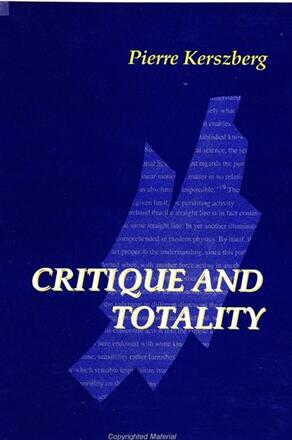
Critique and Totality
Alternative formats available from:
Description
Presents an original and rigorous reading of the entire project of Kantian critique, demonstrating the essential role that cosmology plays in Kant and those he influenced.
Pierre Kerszberg is Professor in the Department of Philosophy at the Pennsylvania State University. He is the author of The Invented Universe: The Einstein-De Sitter Controversy (1916-17) and the Rise of Relativistic Cosmology and collaborated on the critical edition of the French translation of Kant: Theory of the Heavens.
Reviews
"Most pivotal in this book is Kerszberg's nuanced account of the relationship between the antinomies of pure reason and the foundations of critique itself. On Kerszberg's reading, the relationship between Kant's Analytic and Dialectic is much more complicated than anyone has recognized. On the basis of his discoveries, Kerszberg is able to clarify the stakes involved in Kant's resistance to the sorts of moves made by his immediate successors (Maimon, Fichte, Schelling, Hegel) as well as to offer a powerful alternative to the Heideggerian reading of Kant. Along the way he offers compelling evidence against many of the standard readings of Kant's philosophy of science, frequently by situating Kant's texts in the context of early modern debates. Throughout, Kerszberg's scholarship is impeccable. The entire book is brilliant. " — Andrew Cutrofello, Loyola University, Chicago
"This book concerns the essential role that the issue of cosmology plays both in Kant's thought and those (especially in continental thought, Husserl and Heidegger) that Kant has affected. Both Husserl and Heidegger, still the most important thinkers in twentieth-century continental thought, briefly (but unsystematically) explored these topics for which now, thanks to Pierre Kerszberg, we have the details. His point is that Kant's project remains both more complicated and more fertile than either of these thinkers grasped, to the detriment of their own general philosophical positions. " — Stephen H. Watson, University of Notre Dame